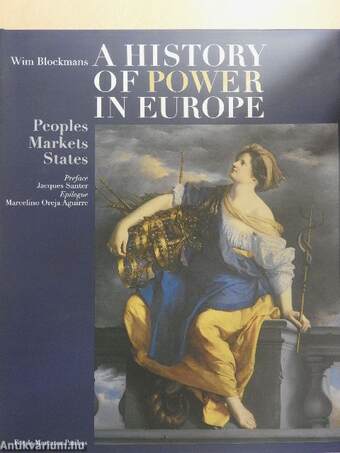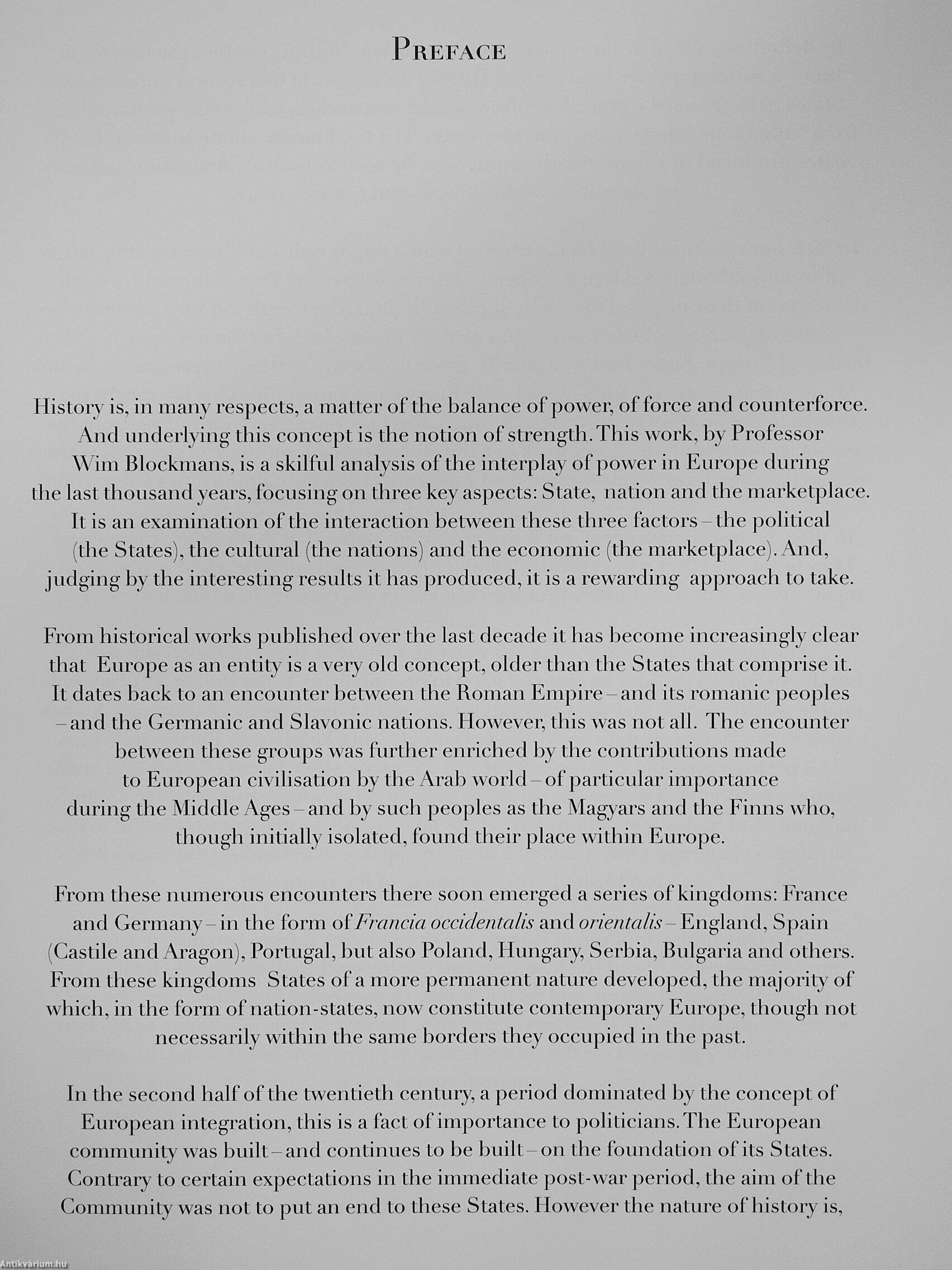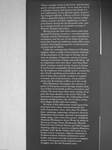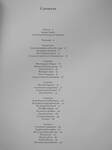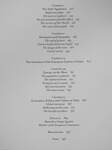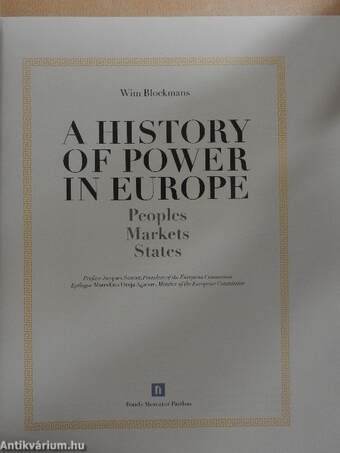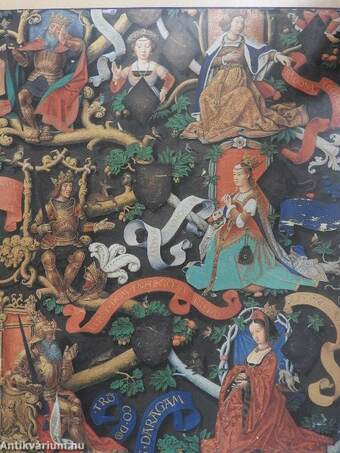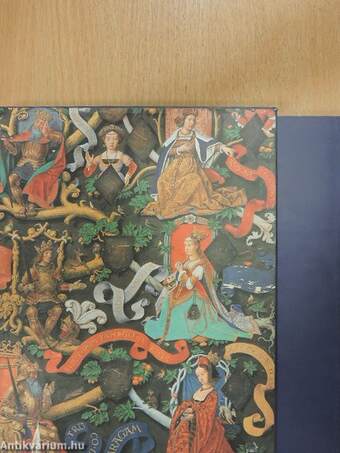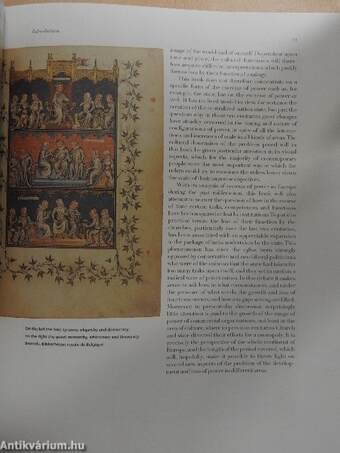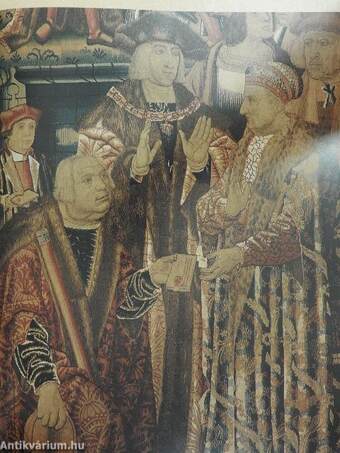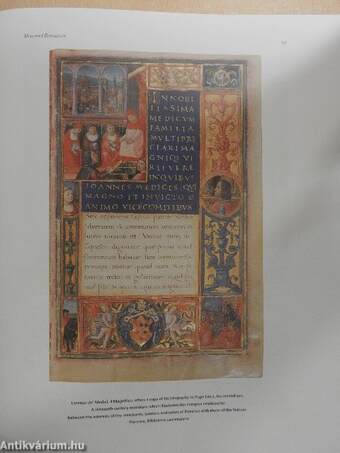1.118.142
kiadvánnyal nyújtjuk Magyarország legnagyobb antikvár könyv-kínálatát
A History of Power in Europe
Peoples, Markets, States
| Kiadó: | Fonds Mercator Paribas |
|---|---|
| Kiadás helye: | |
| Kiadás éve: | |
| Kötés típusa: | Vászon |
| Oldalszám: | 402 oldal |
| Sorozatcím: | |
| Kötetszám: | |
| Nyelv: | Angol |
| Méret: | 30 cm x 24 cm |
| ISBN: | 90-6153-383-x |
| Megjegyzés: | Fekete-fehér és színes reprodukciókkal. Eredeti védődobozban. |
naponta értesítjük a beérkező friss
kiadványokról
naponta értesítjük a beérkező friss
kiadványokról
Előszó
TovábbFülszöveg
'Power corrupts,' wxote Lord Acton, 'and absolute power corrupts absolutely.' we near the end of a turbulent centun and stand on the brink of a new millennium, we see that the nature of power has changed radically. A History of Power in Europe offers a masterful analysis of the various configurations of power and their significance in European histoi^- during the last thousand years-and in so doing provides an invaluable account of Western thought and politics.
Moving from the time when nation-states first appeared in Europe, around .\.d. iooo; through the Crusades and the Renaissance, wars, annexations, revolutions, and the rise of new forms of government, this broad and ambitious study offers a provocative and original perspective on the exercise of power and its effects.
Unlike the contemporary Chinese or Ottoman empires, where a single center of power dominated the population in all respects, Europe was always an amalgam of disparate systems of power. Among its hundreds of... Tovább
Fülszöveg
'Power corrupts,' wxote Lord Acton, 'and absolute power corrupts absolutely.' we near the end of a turbulent centun and stand on the brink of a new millennium, we see that the nature of power has changed radically. A History of Power in Europe offers a masterful analysis of the various configurations of power and their significance in European histoi^- during the last thousand years-and in so doing provides an invaluable account of Western thought and politics.
Moving from the time when nation-states first appeared in Europe, around .\.d. iooo; through the Crusades and the Renaissance, wars, annexations, revolutions, and the rise of new forms of government, this broad and ambitious study offers a provocative and original perspective on the exercise of power and its effects.
Unlike the contemporary Chinese or Ottoman empires, where a single center of power dominated the population in all respects, Europe was always an amalgam of disparate systems of power. Among its hundreds of large and small states-all in competition with each other-new ideas flourished, creating a mixed society unique in history. It was Europe's remarkable diversity that led to the development of its multiple power centers, the rise of both capitalism and socialism, the invention of democracy, and the creation of complex economic and social structures. Great achievements and devastating conflicts were the result.
Wim Blockmans investigates the exercise of power in European society through detailed analysis of three broad fields: politics, economics, and culture. The more these three areas overlap, he argues, the more absolute is the power. Thus, the movement of populations, the relationship of religions to secular powers, the arts of cities, courts, and villages all fall under his scrutiny.
For most of this millennium visual representations have been rulers' and governments' key tools of persuasion. Here, more than 35o illustrations-paintings, engravings, reliquaries, frescoes, illuminated manuscripts, tapestries, genealogical charts, maps, coins, even chess pieces - briUiantly illuminate Blockmans's thesis. Works by artists as diverse as Giorgio Vasari, Rembrandt, Albrecht Dürer, El Greco, Edvard Munch, and Paul Gauguin depicting subjects as varied as religious allegories, portraits of the Medici family, witch trials in six-teenth-centuiy Germany, religious extremism in Northern Ireland, Stalinist architecture, naval battles, and more converge to present a complete picture of European power structures and struggles over the last thousand years. Vissza
Témakörök
- Történelem > Társadalomelmélet
- Közgazdaságtan > Gazdaságtörténet > Összefoglalók
- Idegennyelv > Idegennyelvű könyvek > Angol > Művelődéstörténet
- Idegennyelv > Idegennyelvű könyvek > Angol > Közgazdaságtan > Gazdaságtörténet > Összefoglalók
- Idegennyelv > Idegennyelvű könyvek > Angol > Történelem > Európa története > Egyéb
- Művelődéstörténet > Civilizációtörténet > Európai
- Művelődéstörténet > Kultúra > Története
- Történelem > Idegennyelvű > Angol
- Történelem > Kontinensek szerint > Európa, európai országok története > Egyéb
- Történelem > Politika > Politikai rendszerek
Wim Blockmans
Wim Blockmans műveinek az Antikvarium.hu-n kapható vagy előjegyezhető listáját itt tekintheti meg: Wim Blockmans könyvek, művekMegvásárolható példányok
Nincs megvásárolható példány
A könyv összes megrendelhető példánya elfogyott. Ha kívánja, előjegyezheti a könyvet, és amint a könyv egy újabb példánya elérhető lesz, értesítjük.


